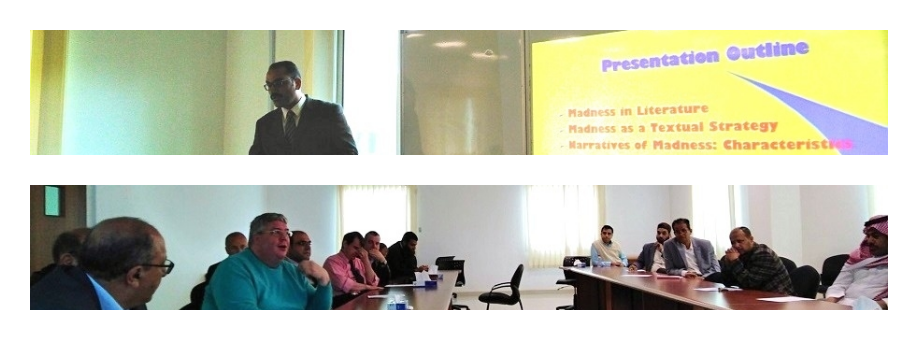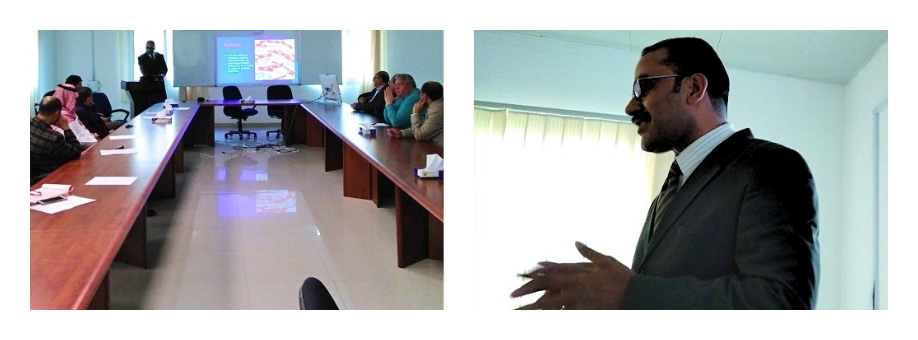Madness in Arabic Narratives
Dr. Mahmoud Radwan made a presentation titled “Madness in Arabic Narratives,” which was organized by the Language Research Center of King Khalid University on March 06, 2019.
Dr. Radwan began by defining madness as “the state of having a serious mental illness, or extremely foolish behavior, or a state of wild or chaotic activity.” He tried to relate the concept of madness to literature.
Dr. Radwan reiterated the fact that literature had always been interconnected with madness. He stated that not only is the idea about madness associated with the author; it also has a close association with characters created by him or her. Madness in literature can refer to both writers who are known to have been insane and to abnormal characters in literature. Thus, there are three major definitions of madness in literature; namely, the "mad writer," the "mad characters," and the application of psychological terms to literary madness, said Dr. Radwan.
Dr. Radwan mentioned the names of some writers (Guy de Maupassant, Ezra Pound, Jonathan Swift, Jack London, and Virginia Woolf) who had suffered from mental illness. He also spoke about mad characters created by some authors who were interested in exploring human behavior, contradictions, inner anxiety, and pathological actions.
Dr. Radwan finally showed how madness was involved in Arabic narratives. He mentioned that Mohamed Al-Samman's Madness in Arab Culture is one of the most comprehensive critiques of the discourse of madness. He added that Arab writers utilize the fictional conventions of madness as a textual strategy to break the culture of silence about a discourse evaded on purpose and thus they disinter a world that is mysteriously hidden. Examples of such writers include Khudeir Miri (Iraq), Samiha Khrais (Jordan), Usama Issa (Palestine), Ahmed Yousif Dawood (Syria), Ghazi Abdul Rahman Al Gosaibi (Saudi Arabia), Walid Damag (Yemen), Khairy Shalaby (Egypt), Ihab Adlan (Sudan), and Ismail Yebrir (Algeria).
The seminar was very informative and a great success.
Date: 3/8/2019
Source: Mohammad Adil Siddique


